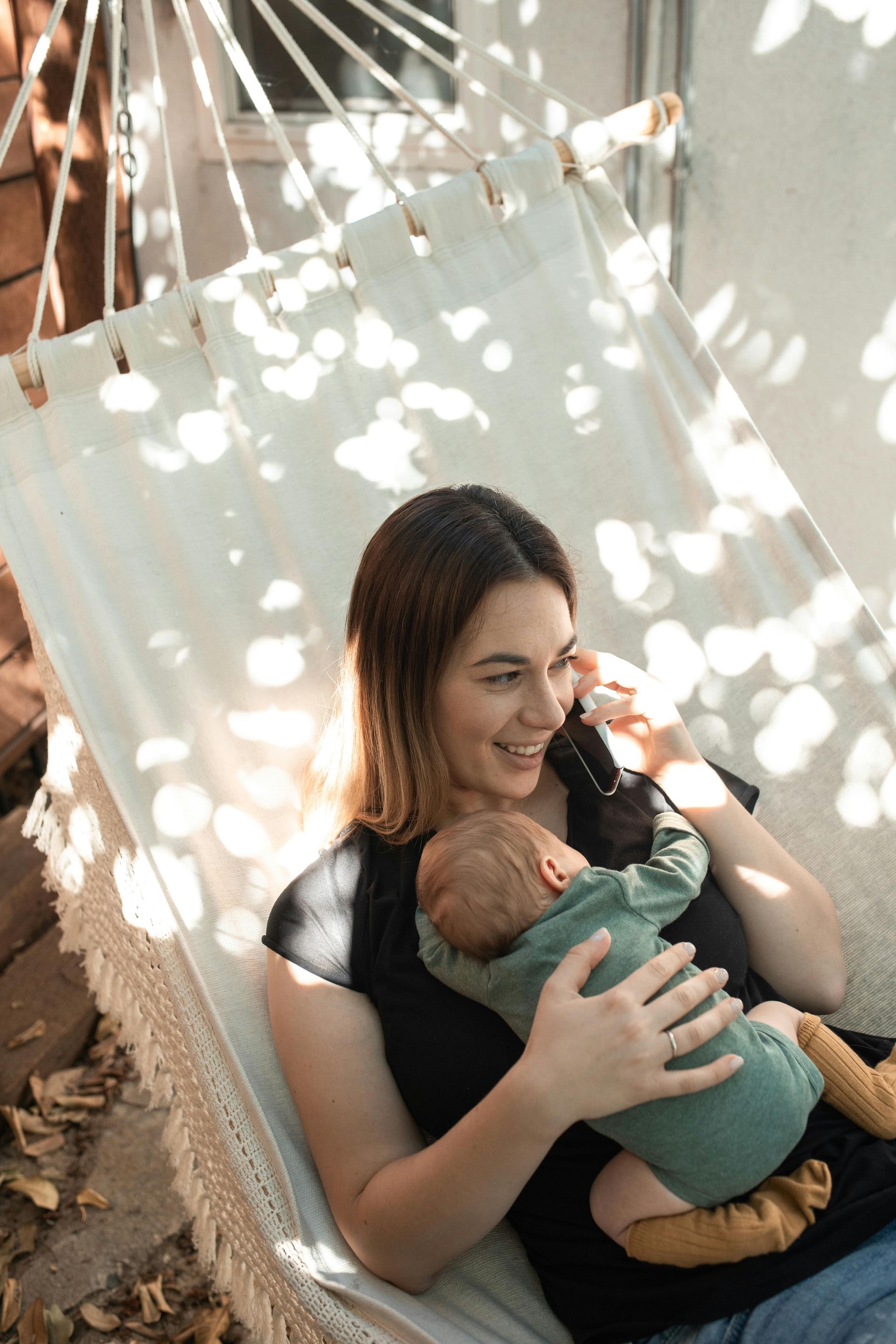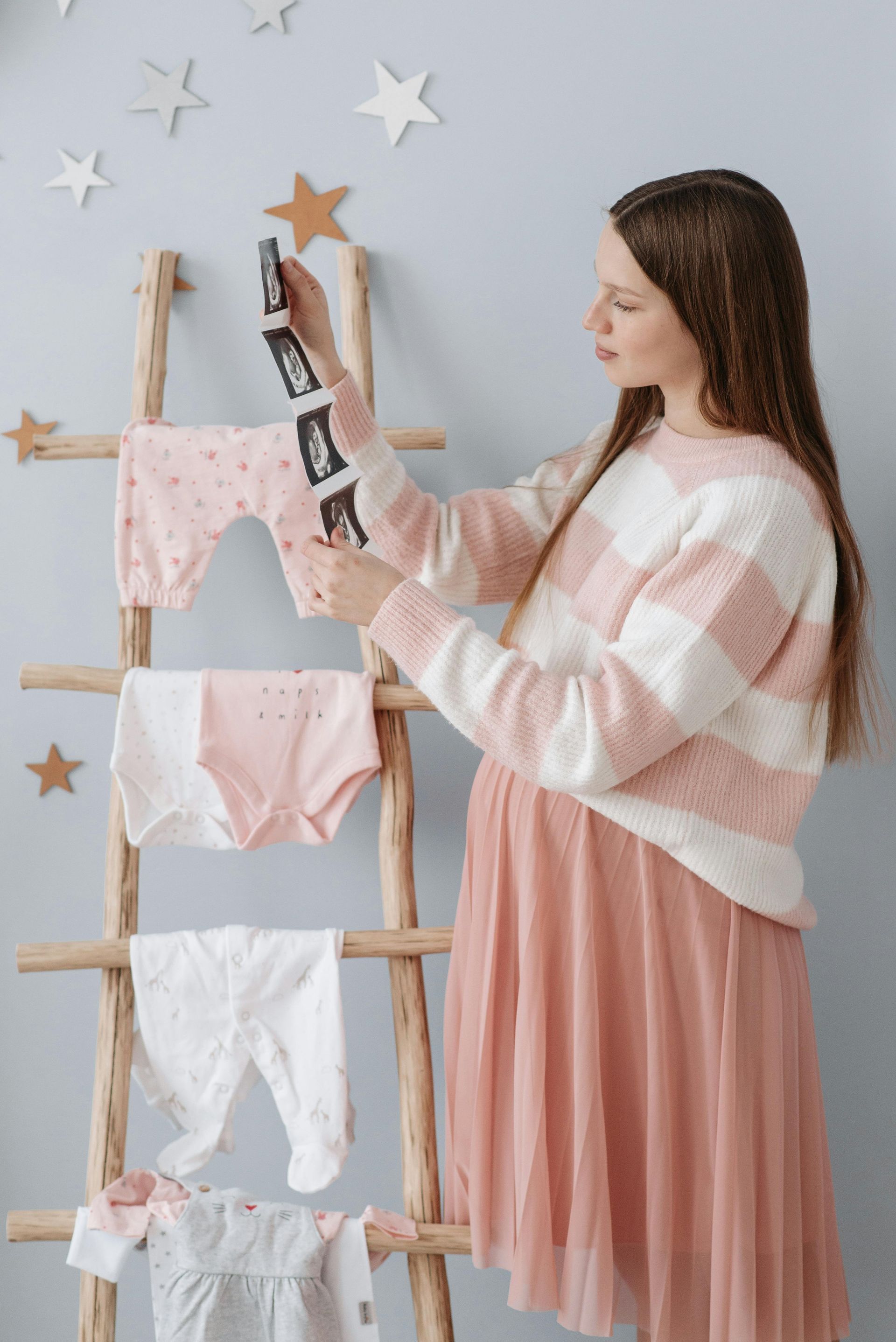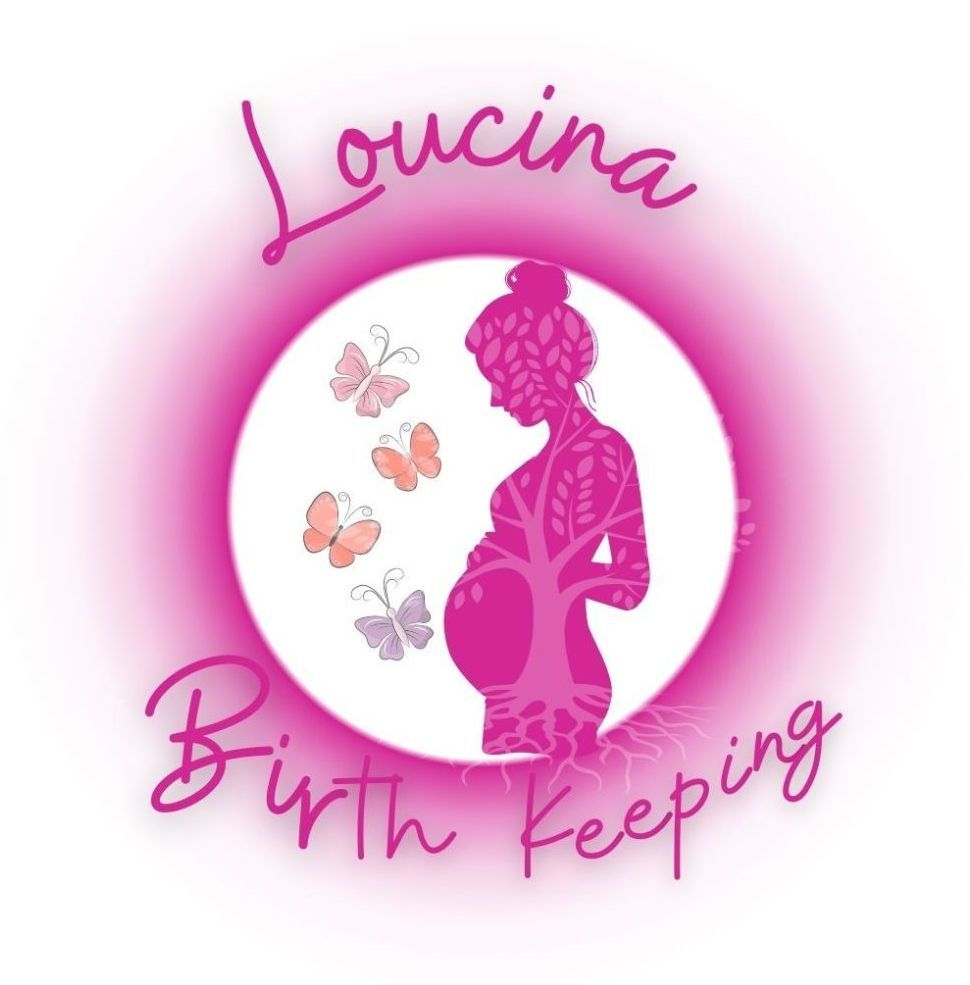Virtual Maternity Support: How Remote Birthkeeping Helps UK Parents Anywhere
Introduction
Not everyone can access the birth support they want in person. Maybe you live somewhere with limited private maternity options. Maybe your ideal birthkeeper is fully booked locally. Or perhaps you’d simply prefer the flexibility and affordability of remote support.
The good news? Virtual maternity support gives you access to expert, personalised care — wherever you are in the UK (or beyond).
At Loucina Birthkeeping, we offer a Virtual Package designed to give parents the same knowledge, guidance and emotional support as our in-person care — but delivered online.
Here’s how remote birthkeeping works, what’s included, and why it’s transforming pregnancy support for modern families.
What Is Virtual Maternity Support?
Virtual maternity support is non-clinical, holistic pregnancy and birth guidance delivered via:
- Video calls (Zoom or similar)
- Phone and messaging support
- Downloadable resources like birth plan templates and preparation guides
It’s ideal for parents who want personalised guidance but can’t (or don’t want to) book in-person visits.
Who Virtual Maternity Support Is For
Virtual birthkeeping works beautifully if you:
- Live outside London and
want high-quality holistic care.
- Have limited local private maternity options.
- Prefer
flexibility around busy work or family schedules.
- Want
affordable private support without travel costs.
- Feel confident about labour logistics but want
expert guidance and advocacy prep.
- Need emotional support after
a previous traumatic birth or high-risk label.
What’s Included in Loucina Birthkeeping’s Virtual Package
Our Virtual Maternity Care Package is designed to feel as personal and empowering as in-person support.
1. In-Depth Antenatal Sessions
- Long video consultations (60–90 minutes each) tailored to your pregnancy.
- Birth planning, NHS guideline navigation, advocacy coaching, comfort measures and emotional preparation.
- Support for specific concerns (VBAC, high-risk, birth trauma).
2. Ongoing Communication
- Unlimited WhatsApp/email support for questions between sessions.
- Encouragement and clarity when unexpected appointments or test results arise.
3. Birth Planning Resources
- Access to our
professional birth plan template and custom preparation guides.
- Help wording preferences to be
clear and respected by NHS staff.
4. Support for Birth Partners
- Coaching for your birth partner so they know how to
advocate and comfort effectively.
- Practical tips for early labour at home and navigating hospital policies.
5. Postnatal Check-In
- Virtual session after birth to
process your experience, support feeding, and help with recovery.
Benefits of Virtual Maternity Support
Personalised, Expert Care Anywhere
No matter where you live — from London suburbs to rural Scotland — you can access specialist birthkeeping expertise.
Flexible and Convenient
Fit sessions around work or childcare. No travel, no waiting rooms, no postcode restrictions.
Affordable Alternative
Virtual support costs less than full in-person packages while still giving you expert guidance.
Continuity & Advocacy
Even if your NHS appointments feel rushed, you’ll have someone who knows you and helps you prepare.
Confidence for Birth Partners
Your partner learns how to support you practically and emotionally, helping both of you feel ready.
How Virtual Support Fits With NHS Care
Many parents use our virtual package alongside:
- NHS midwife appointments for medical checks.
- Local antenatal classes (if desired).
- Planned home, birth centre or hospital births.
Virtual birthkeeping doesn’t replace clinical care — it wraps around the system, filling the gaps in time, attention and advocacy.
Common Concerns About Virtual Support — Answered
“Will it feel impersonal?”
No. Our sessions are
private, unhurried video calls where we can really connect — many parents say it feels surprisingly personal and warm.
“What if I need help during labour?”
While we can’t physically attend, we can
coach your birth partner and provide real-time reassurance by message or call if possible.
“Can virtual support help if I’m high risk?”
Yes. We provide
evidence-based guidance, birth planning and advocacy coaching, even if you’re consultant-led.
“Do I need in-person visits as well?”
Not necessarily — but some parents combine a
single in-person session with a mostly virtual package for the best of both worlds.
Real Story: Empowered Despite the Distance
“We live in rural Wales and I wanted a birthkeeper but couldn’t find anyone local. Loucina’s virtual support was amazing — long video calls, a solid birth plan, and guidance when the hospital tried to push induction. Even from miles away, I felt supported and confident.”
—
Lucy, UK
Practical Tips for Getting the Most From Virtual Maternity Care
- Book Early (Ideally by 20–24 Weeks)
This gives time to build a relationship and plan thoroughly. - Prepare Questions Before Sessions
Make the most of your time — no rushed midwife appointments here! - Share Your Birth Partner’s Contact
We can help them feel confident and prepared. - Request Your NHS Birth Notes Early
Having them helps with personalised planning. - Create a Calm Space for Calls
A cup of tea, notebook, and quiet time make sessions more productive.
How Loucina Birthkeeping Can Support You Virtually
- Virtual Maternity Package — full antenatal support, birth planning, partner coaching, postnatal check-in.
- One-Off Online Consultations — perfect for birth trauma, high-risk guidance, or birth plan review.
- Free Resources — birth plan templates and checklists.
Based in London but helping parents across the UK and internationally through trusted, evidence-based, non-clinical care.
FAQs
Is virtual support enough if I want a home birth?
Yes — we’ll help you prepare and advocate with your NHS or private midwives.
Can you attend my birth virtually?
We can be
available by call or message for reassurance and quick guidance, though not as a substitute for medical advice.
Does virtual support include postnatal help?
Yes — our package includes a
postnatal debrief session to check in on emotions, feeding and recovery.
Can I upgrade to in-person support later?
If you’re within our travel area and space allows, yes — ask early as slots fill up fast.
Next Steps
💛 Want expert, personalised maternity care — wherever you are?
- Explore our Virtual Maternity Package.
- Book a free discovery call to see if virtual support is right for you.
- Download our free birth plan template to get started today.
Distance shouldn’t stop you from feeling prepared, informed and confident about your birth.











